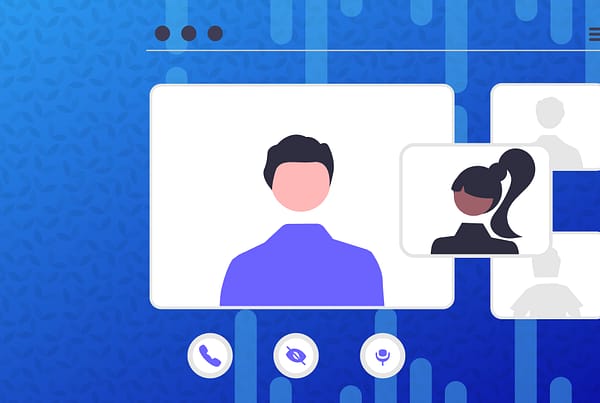Medicare has made some critical updates for 2020 and we want to help make sure you are prepared for them. As always with Medicare, they released a very lengthy document to breakout in depth all of the changes they have made. However, we have tried to simplify it for the key items that matter. In addition, this article will breakdown MIPS and some of the changes coming in 2020 (or not coming).
Disclaimer: This is not a comprehensive list and is not meant to provide medical or legal advice.
CQ Modifier
The biggest change to Medicare rules in 2020 comes in the form of a new modifier related to services provided by PTAs. Coming in 2022, services provided by PTAs will be greeted with a payment reduction. However, starting on January 1, 2020, you must use the CQ modifier to denote a service provided by a physical therapist assistant.
Specifically, you must add the CQ modifier on services where at least 10% of the total service was provided by the PTA. On untimed modalities, the belief is that the PT and the PTA are not working together. Therefore, if the PTA set up the patient on the modality, then that unit would require the CQ modifier.
Example 1: Let’s use unattended e-stim. A therapist spends 4 minutes with the patient on education prior to the PTA spending 4 minutes setting up the machine and then the machine runs unattended for 10 minutes. In this case, the PTA provided 4 minutes out of the total 18-minute service, which is greater than 10%. Therefore, you must use the CQ modifier.
Example 2: The PT and the PTA work together to provide a patient with 42 minutes of manual therapy (97140). The PT works on the patient for 30 minutes and the PTA works on the patient for 12 minutes. In this scenario, you will bill 2 units of 97140 for 30 minutes without the CQ modifier and 1 unit of 97140 for 12 minutes with the CQ modifier.
Please note that this modifier is only needed when the PTA provides the services independently from the therapist. If the PT and the PTA are working together to provide a service, the CQ modifier is not needed. As a general guide, if the PT is not directing the PTA or simultaneously providing care to the patient, then the modifier is needed.
Modifier 59 Updates
As of January 1, 2020, the National Correct Coding Initiative (NCCI) has stated that if you bill an initial evaluation code (97161, 97162, 97163) or a re-evaluation code (97164) on the same date of service for the same patient as CPT code 97140 (manual therapy), you MUST affix modifier 59 to 97140 in order to receive payment for the manual therapy service.
Note that in order to use modifier 59, you must perform services that are considered separate and distinct. Also note, these changes apply to all payers that follow NCCI rules, NOT just Medicare.
Non-Billable Eval Codes Update
As of January 1, 2020, the National Correct Coding Initiative (NCCI) has stated that you cannot bill an initial evaluation along with CPT code 97530 (therapeutic activities) and/or 97150 (group therapy) on the same date of service for the same patient.
This means that if you perform an initial evaluation (CPT code 97161, 97162 or 97163) and bill CPT code 97530 and/or 97150, you will NOT receive payment for 97530 and/or 97150, even with the use of Modifier 59.
Note, these changes apply to all payers that use the NCCI rules, NOT just Medicare.
Therapy Cap Threshold
For the year 2020, Medicare has raised the threshold for use of the KX modifier from $2,040 in 2019 to $2,080 in 2020.
For Prompt EMR users, we have built-in a trigger for the KX modifier to alert therapists and billers when a patient is $250 away from reaching the $2,080 threshold. Learn more about Prompt’s built-in alerts here.
MIPS Update
For 2020, you are required to participate in MIPS if, between October 1, 2018 and September 30, 2019, you, as an individual provider, have:
Billed >$90,000 in Part B allowable charges (not billed amount), evaluated/treated more than 200 unique Medicare patients, and provided more than 200 covered professional services under the Medicare Physician Fee Schedule. A professional service is one claim service line with an allowed amount greater than 0.
If you have not met all three of these, you are not required to participate in MIPS. If you have met 2 of the 3, you can choose to opt-in.
IMPORTANT NOTE:
While some software vendors and healthcare “experts” are reporting that MIPS participation will become mandatory in 2021, the CMS has not released any communication stating this intention.
IMPORTANT NOTE NUMBER 2:
If you choose to voluntarily report to MIPS, you are not eligible to receive a payment adjustment. Voluntary participation in MIPS adds a reporting and documentation burden to therapists and their patients but does not entitle you to increased reimbursements/payment adjustments.
In order to receive the payment adjustment (which can be positive or negative), you must opt-in to MIPS. While there is the potential for 8% positive reimbursements, there is also the potential for negative penalties.
IMPORTANT NOTE NUMBER #3:
While the majority of MIPS participants do receive a MIPS bonus payout, the payout is typically very low. In 2020, based on the 2018 reporting year (MIPS bonuses are paid on a 2-year delay), providers who achieved the maximum MIPS score in 2018 will receive only a 1.68% positive adjustment in 2020 (based on this article). Because MIPS is a budget-neutral program and because only ~5% of participating clinicians are receiving a penalty, the actual bonus payout has been extremely low, despite the advertised potential for an 8% bonus.
In addition, for 2020, the threshold to avoid a penalty has increased to 45 points and the maximum penalty has also increased. This means it is now harder to reach the bonus and the penalty for not reaching it is more severe.
Conclusions:
Medicare made a few updates in 2020, mostly the added burden of the CQ modifier for PTA services and the inability to bill 97530 with an eval-code.
In addition, MIPS bonus payouts became harder to reach and MIPS payouts for 2019 were extremely low, even for maximum performing clinicians (1.68% was the maximum payment bonus for 2019).
Our continued belief at Prompt is that if you are not required to participate in MIPS, you should not choose to opt-in. MIPS participation comes with an added burden for documentation and reporting and to-date, the payment bonuses have been very low. This is because only 5% of clinicians have been receiving penalties and MIPS is a budget-neutral program.
With the increased threshold to receive the bonus in 2020 (from 30 points to 45 points) it is likely that less clinicians will receive the bonus, but hard to say that definitively. In addition, with the exceptional performance threshold now at 85 points, it will be harder to reach the maximum bonus, which to date has only reached 1.68%. Many clinicians who participate in MIPS will have a large added documentation and reporting burden for a revenue bonus in 2-years of less than 1.5%.




